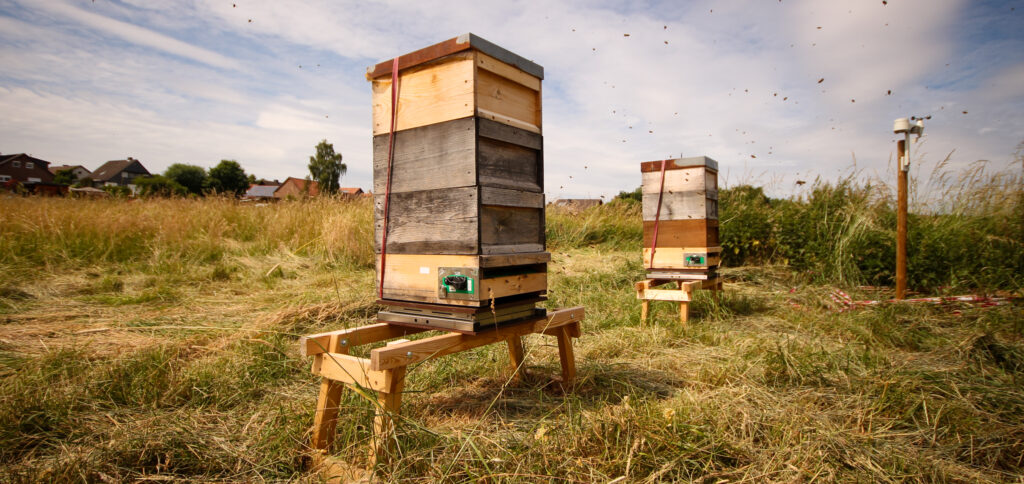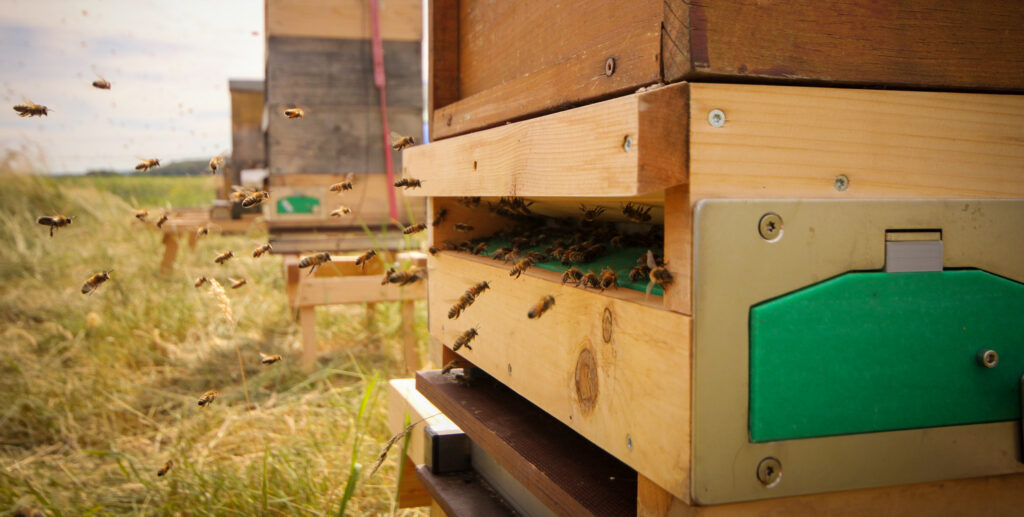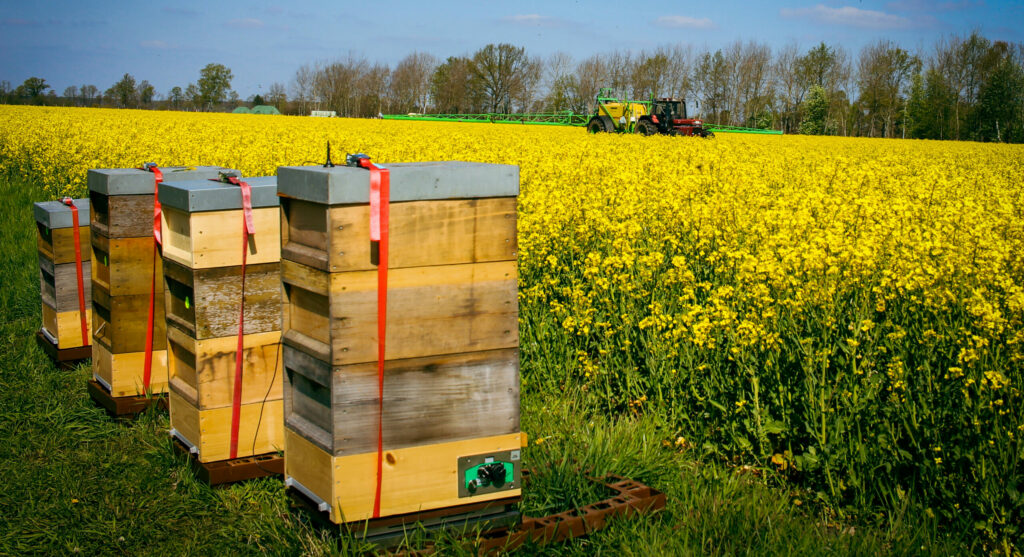In the project, digital tools will be brought into practice that will benefit both practical beekeeping and the approval of plant protection products in risk assessment.

First, existing indicators of bee vitality will be reviewed for their practicality and transferred to new technologies. Vitality is understood as their ability to tolerate stress from diseases or pesticides and to sustain their performance as pollinators and honey producers. The vitality indicators to be developed will allow the vitality of bee colonies to be measured and assessed in an automated way.
Such vitality indicators (VIs) will be used by beekeepers to detect disturbances of vitality at an early stage, to understand their causes, and to take appropriate countermeasures. Testing institutes can use the VIs with the appropriate tools to increase the accuracy and efficiency of field trials. Regulatory agencies can incorporate VIs in the formulation of their protection goals, risk assessments, and compensatory measures. By providing a concrete landscape reference, different cropping methods can be evaluated from the perspective of bee vitality and pollination performance. Digital tools include an electronic counter of a colony’s flight activity (BeeCheck), automatic hive scales (tested in the TrachtNet monitoring program), and user-friendly software (VI-SOFT) that supports the derivation of appropriate beekeeping practices.
To ensure that BeeCheck and the indicators that can be measured with it are used in practice, the BioChem Agrar testing institute will keep an eye on practicality and develop innovative services based on these indicators. Another testing institute, Rifcon GmbH, will carry out the statistical evaluation of these services and, if necessary, support them with its own trials. In addition, Rifcon will advance the use of the BEEHAVE simulation model in the context of risk assessment of plant protection products with a case study and use the data collected with BeeCheck for this purpose. The specialist institutes FBI and IBI are developing beekeeper-oriented usage protocols in order to transfer the knowledge gained with BeeCheck to widely used hive scales.

VI-SOFT will be based on the multiple validated simulation model BEEHAVE. It will be further developed into an interactive tool for beekeepers so that research findings can be made available to the wider professional audience in an innovative way. IBI and FBI will provide technical input to VI-SOFT and act as intermediaries to practice through beekeeper education and extension.
The testing of the indicators will be based on stress trials at four sites where the spatiotemporal supply of flowering plants in the surrounding landscape will be recorded using remote sensing (Unmanned Aerial Vehicles, UAV), as well as responses in bee flight activity and hive weight. The corresponding “workflow” from the collection of landscape and weather data to the recording of vitality represents another product of the project, which can be applied supraregionally with the help of satellite data.
The gaiac – Research Institute for Ecosystem Analysis and Assessment e.V. will develop in a case study a new module for the simulation model GraS model to derive the nectar and pollen supply based on public GIS data. In a feasibility study, the use of the data as input for BEEHAVE will be tested. Coupling these two models will allow for new applications in pesticide risk assessment and the formulation and evaluation of risk mitigation measures in agricultural landscapes.

In addition, it is important to enable the requirements of good laboratory practice (GLP). Therefore, eurofins Agrosciences Services Ecotox GmbH, a non-grant recipient partner, has been recruited to act as a direct facilitator and networker with the requirements of guidelines in contract research. This partner will coordinate closely with BioChem Agrar and its work package and provide feedback from its own research to the project partners. This will allow an important requirement made in the call for the project proposal to be fulfilled.
